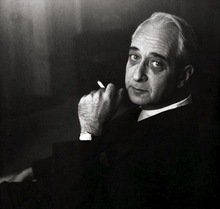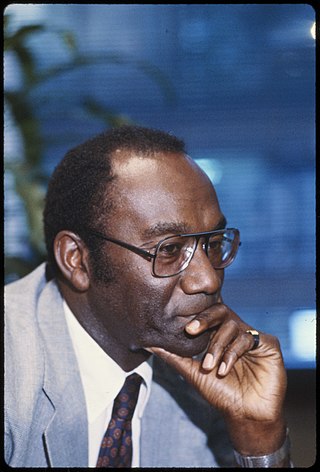Philanthropy is a form of altruism that consists of "private initiatives for the public good, focusing on quality of life". Philanthropy contrasts with business initiatives, which are private initiatives for private good, focusing on material gain; and with government endeavors that are public initiatives for public good, such as those that focus on the provision of public services. A person who practices philanthropy is a philanthropist.

Lionel Mordecai Trilling was an American literary critic, short story writer, essayist, and teacher. He was one of the leading U.S. critics of the 20th century who analyzed the contemporary cultural, social, and political implications of literature. With his wife Diana Trilling, whom he married in 1929, he was a member of the New York Intellectuals and contributor to the Partisan Review.

A Carnegie library is a library built with money donated by Scottish-American businessman and philanthropist Andrew Carnegie. A total of 2,509 Carnegie libraries were built between 1883 and 1929, including some belonging to public and university library systems. 1,689 were built in the United States, 660 in the United Kingdom and Ireland, 125 in Canada, and 25 others in Australia, South Africa, New Zealand, Serbia, Belgium, France, the Caribbean, Mauritius, Malaysia, and Fiji.
Milton Meltzer was an American historian and author best known for his nonfiction books on Jewish, African-American, and American history. Since the 1950s, he was a prolific author of history books in the children's literature and young adult literature genres, having written nearly 100 books. Meltzer was an advocate for human rights, as well as an adjunct professor for the University of Massachusetts, Amherst. He won the biennial Laura Ingalls Wilder Award for his career contribution to American children's literature in 2001. Meltzer died of esophageal cancer in 2009.

The Carnegie Corporation of New York is a philanthropic fund established by Andrew Carnegie in 1911 to support education programs across the United States, and later the world.

Richard Theodore Ely was an American economist, author, and leader of the Progressive movement who called for more government intervention to reform what they perceived as the injustices of capitalism, especially regarding factory conditions, compulsory education, child labor, and labor unions.

Robert Sobel was an American professor of history at Hofstra University and a well-known and prolific writer of business histories.

Franklin Augustine Thomas was an American businessman and philanthropist who was president and CEO of the Ford Foundation from 1979 until 1996. After leaving the foundation, Thomas continued to serve in leadership positions in American corporations and was on the board of the TFF Study Group, a nonprofit institution assisting development in South Africa. Thomas was chairman of the nonprofit organization September 11th Fund from 2001 to 2004 and was involved in the Nelson Mandela Children's Fund, having served as the manager of its American office.

Partus sequitur ventrem was a legal doctrine passed in colonial Virginia in 1662 and other English crown colonies in the Americas which defined the legal status of children born there; the doctrine mandated that children of enslaved mothers would inherit the legal status of their mothers. As such, children of enslaved women would be born into slavery. The legal doctrine of partus sequitur ventrem was derived from Roman civil law, specifically the portions concerning slavery and personal property (chattels), as well as the common law of personal property; analogous legislation existed in other civilizations including Medieval Egypt in Africa and Korea in Asia.
Claudia Zaslavsky was an American mathematics teacher and ethnomathematician.

Leo Catholic High School is a private all-male, Catholic high school in the Auburn-Gresham neighborhood of Chicago, Illinois, United States. It is located in the Archdiocese of Chicago and home to a predominantly African–American student body. The school is named in honor of Pope Leo XIII.
Norman Itzkowitz was an American academic who was a professor of Near Eastern Studies at Princeton University. He was an Ottoman historian who brought perception of psychoanalysis into Near Eastern Studies.
Pierre Stephen Robert Payne was an English-born author, known principally for works of biography and history, although he also wrote novels, poetry, magazine articles and many other works. After working in Singapore and China, he moved to the United States in 1946 and became a professor of English literature. From 1954 onwards he lived as a writer in New York.
Richard B. Bernstein was an American constitutional historian, a distinguished adjunct professor of law at New York Law School, and lecturer in law and political science at the City College of New York's Skadden, Arps Honors Program in Legal Studies in its Colin Powell School for Civic and Global Leadership.
Madison Fred Mitchell belonged to the New York School Abstract Expressionist artists whose influence and artistic innovation by the 1950s had been recognized around the world. New York School Abstract Expressionism, represented by Jackson Pollock, Willem de Kooning, Franz Kline and others became a leading art movement of the post-World War II era.
Edwin Scott Gaustad was a professor of history at the University of California, Riverside. He achieved fame with his study of the genealogy of religion in the United States, Historical atlas of religion in America. The 1972 edition of this work has been used in secular histories of Mainline Protestantism and the Emergent church movement (denominationalism) for decades, and his a Religious History of America was a standard text for college students. A graduate of Baylor University and Brown University, Gaustad dedicated his career to sharing his expansive research on religious history. Gaustad was president of the American Society of Church History. Gaustad died March 25, 2011, in Santa Fe, New Mexico at the age of 87.
William O'Rourke is an American writer of both novels and volumes of nonfiction; he is the author of the novels The Meekness of Isaac, Idle Hands, Criminal Tendencies, and Notts, as well as the nonfiction books, The Harrisburg 7 and the New Catholic Left, Signs of the Literary Times: Essays, Reviews, Profiles, and On Having a Heart Attack: A Medical Memoir. He is the editor of On the Job: Fiction About Work by Contemporary American Writers and the co-editor of Notre Dame Review: The First Ten Years. His book, Campaign America '96: The View From the Couch, first published in 1997, was reissued in paperback with a new, updated epilogue in 2000. A sequel, Campaign America 2000: The View From the Couch, was published in 2001.
Luther Carrington Goodrich was an American sinologist and historian of China. A prolific author, he is perhaps best remembered for his work on the Dictionary of Ming Biography, 1368–1644.
Philip Aigbona Igbafe was a Nigerian historian, professor and public administrator noted for his work on the history of the Edo people of the precolonial Kingdom of Benin. He belonged to the Ibadan History School and his major works examine the motives for colonialism and highlight the political, social and economic consequences of British rule for the African kingdom.
Lilian Moore, was a writer of children's books, teacher and poet. She founded and edited for Scholastic's Arrow Book Club, a low-cost mail-order paperback service for children. She also helped found the Council on Interracial Books for Children.







